Dear friends,
In 2022, we gradually welcomed partners and visitors back to campus. The openness and warmth
that are defining
characteristics of the EARTH culture have also been essential in the development of an
Academic Program
grounded in collaboration, experiential
learning and the exchange of knowledge and values. It feels so good to be able to live and
share that openness and warmth fully once again.
2022 was also a year to reflect on the achievements of our 2018-2022 Strategic
Plan and to chart the course for the University’s future, through a year-long
planning process involving the entire EARTH community as well as many
trusted partners. As part of this process, we defined EARTH’s
desired contribution to the urgent challenges the world faces.
We are calling this strategic aspiration our EARTHShot:
By 2050,
EARTH and our partners will have empowered and prepared a global
movement of leaders to achieve nature positive food production
that improves producer
livelihoods in developing regions.
By 2050, we need to ensure access to healthy diets for 10 billion people in ways
that both dramatically reduce food production’s negative impact on climate
and at the same time enhance human livelihoods. EARTH imagines global
food systems that provide healthy food for all in ways that are
positive for people and planet. We aspire to systems that leverage
technology and innovative production models and that promote enhanced
food awareness, diversity, and culture to provide greater resilience and
livelihoods with dignity. This will require monumental effort and collaboration
at a global level, with allies from all sectors.
In this Annual Report we are sharing some of the initiatives we have developed
and intend to scale in order to grow the University’s impact: virtual
learning tools to prepare a greater number of leaders from
different sectors to become agents of change for our
food systems; alliances with global institutions; strengthening
and supporting our graduates to scale their leadership and impact
and achieve a successful transition into employment and entrepreneurship;
and the design of innovative solutions to support and empower food producers,
among others.
I wish to express my profound gratitude to our donors, friends, and strategic partners; to our Boards;
our graduates; and our faculty, staff, and students. All of you are at the heart of what EARTH is,
and it’s only together that we can reach our
EARTHShot 2050 and build the food systems that are needed for the future.
¡Gracias!
Arturo Condo
President, EARTH University
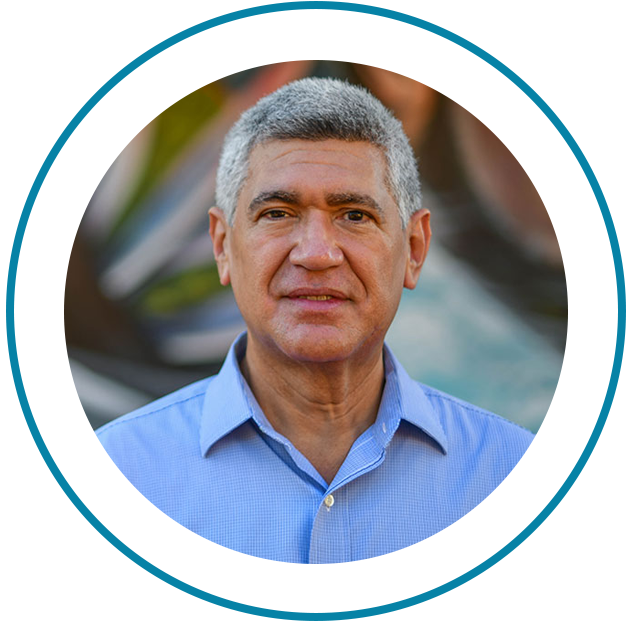
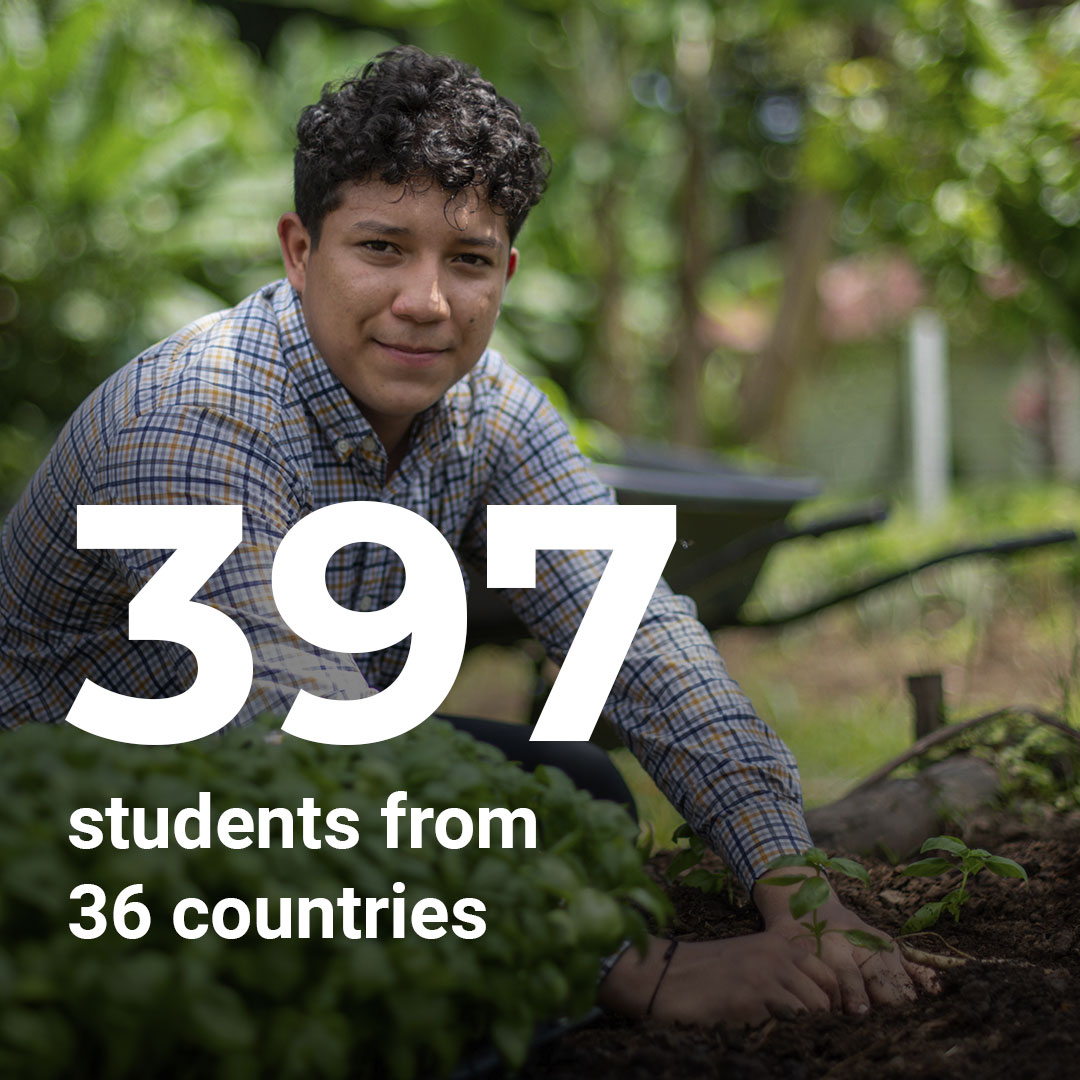
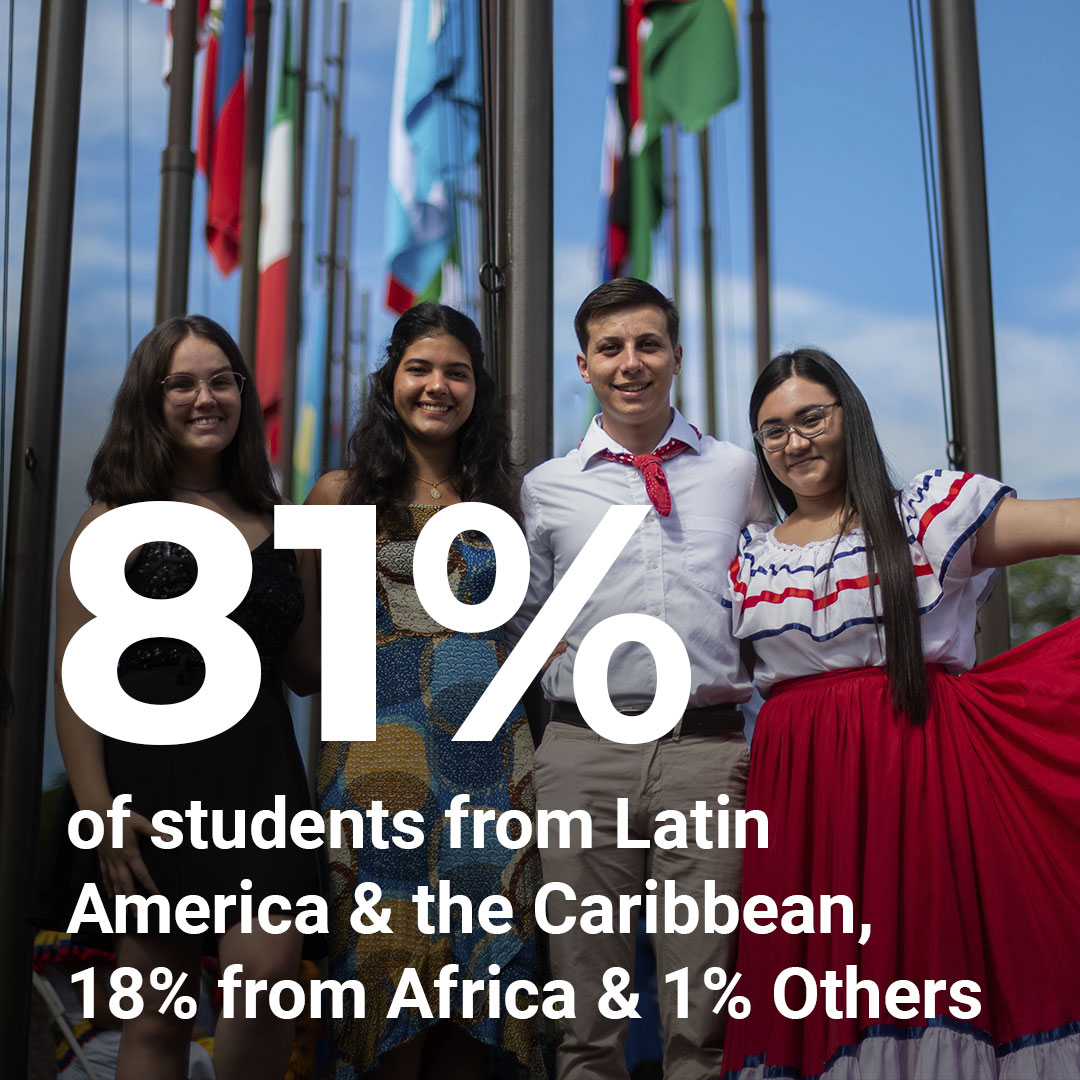
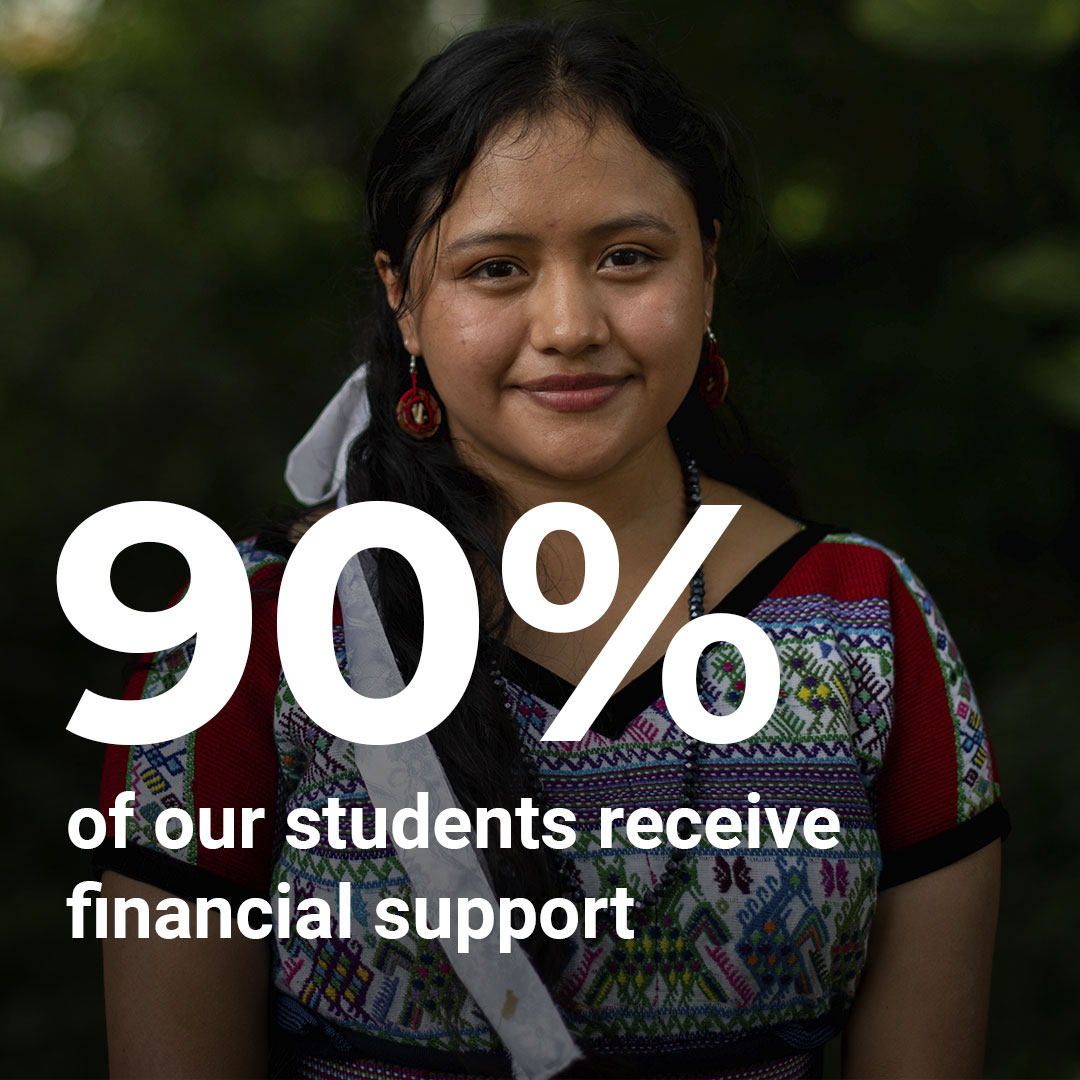
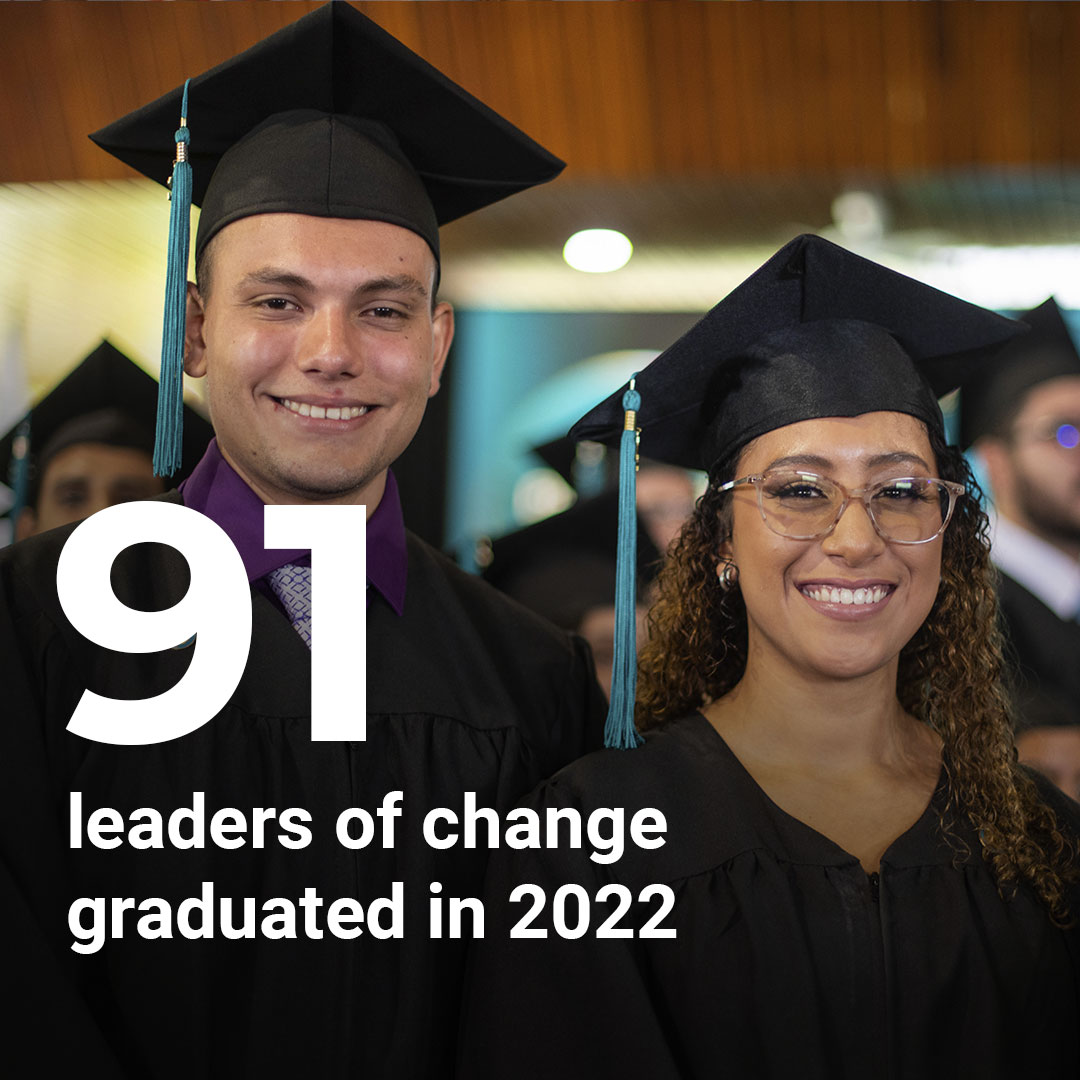
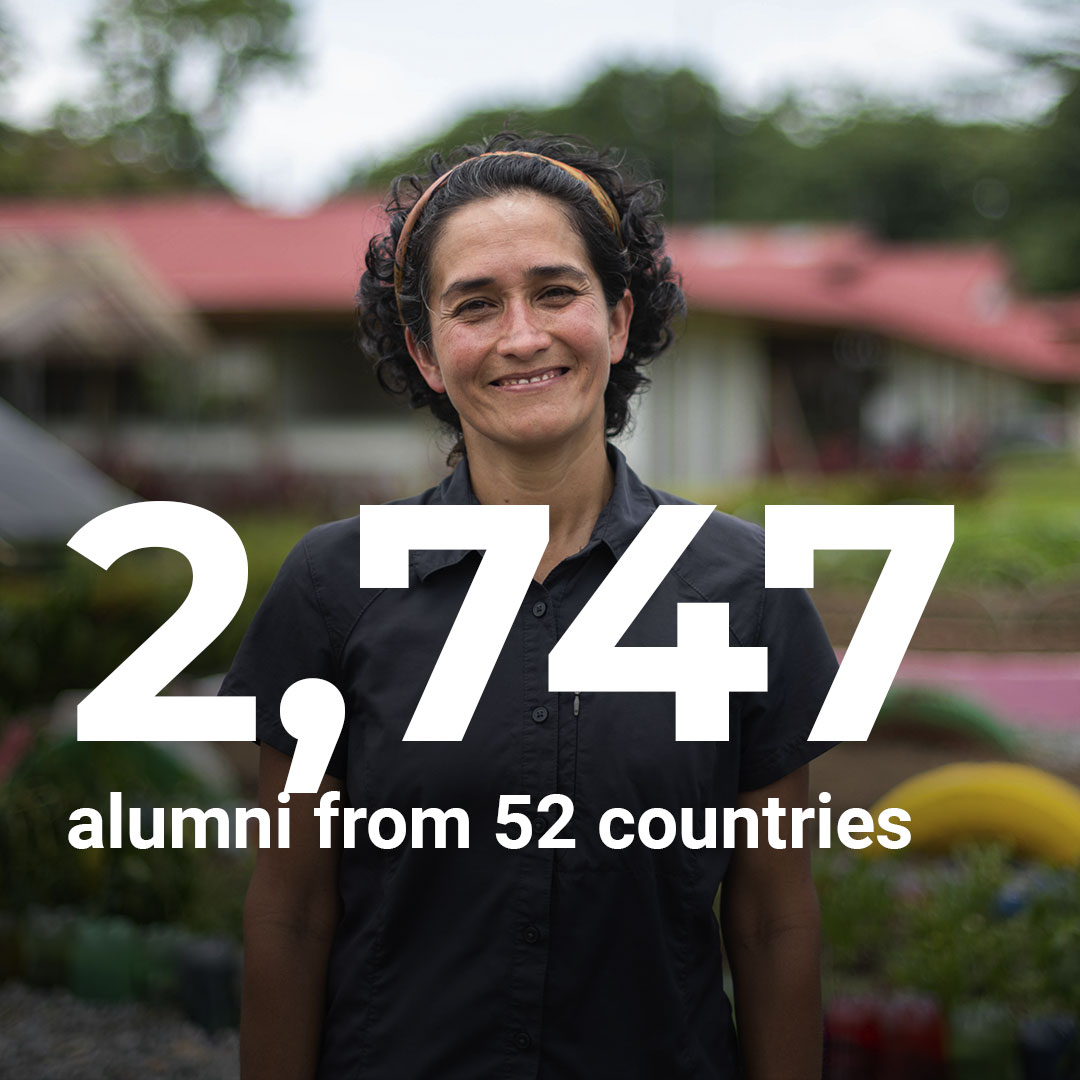
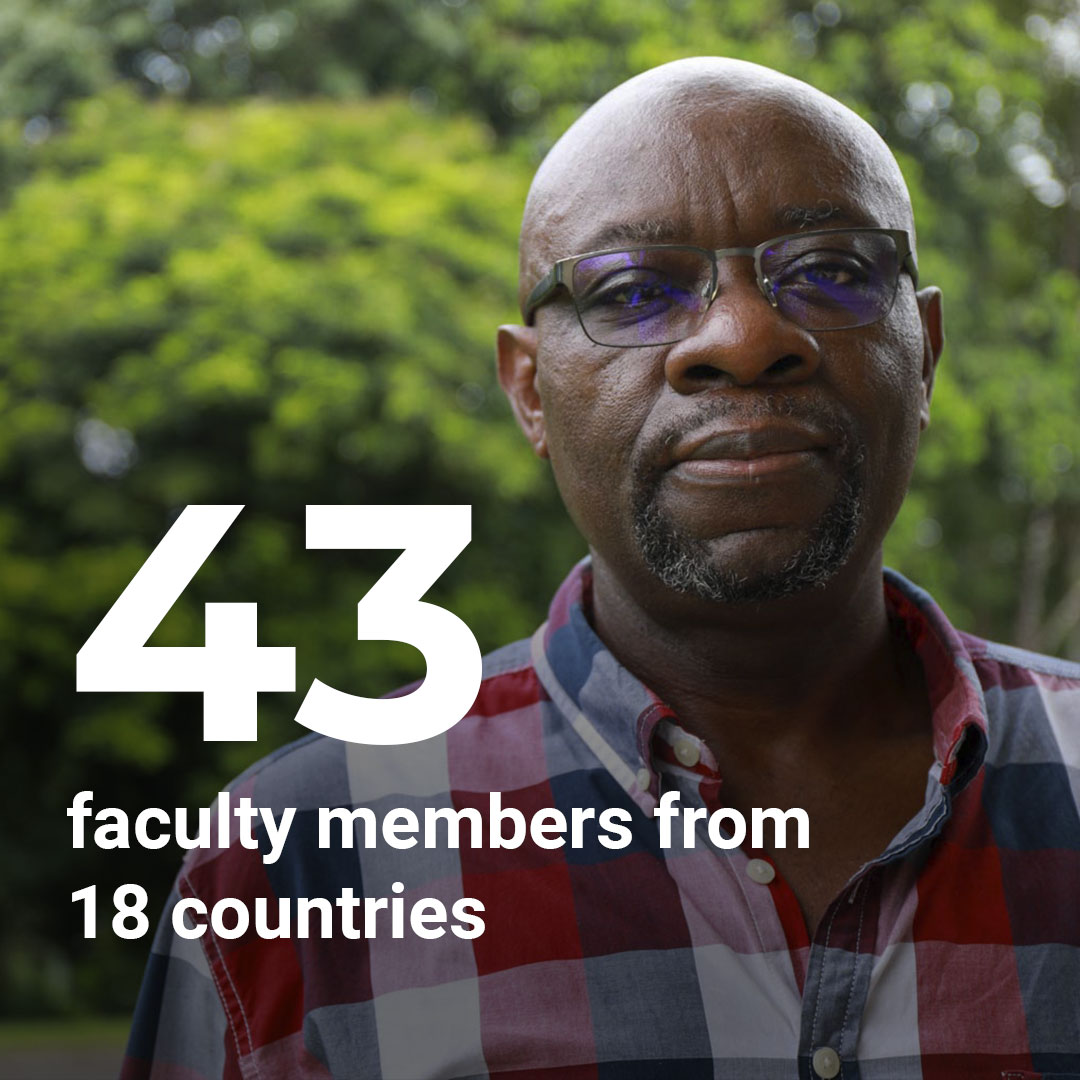
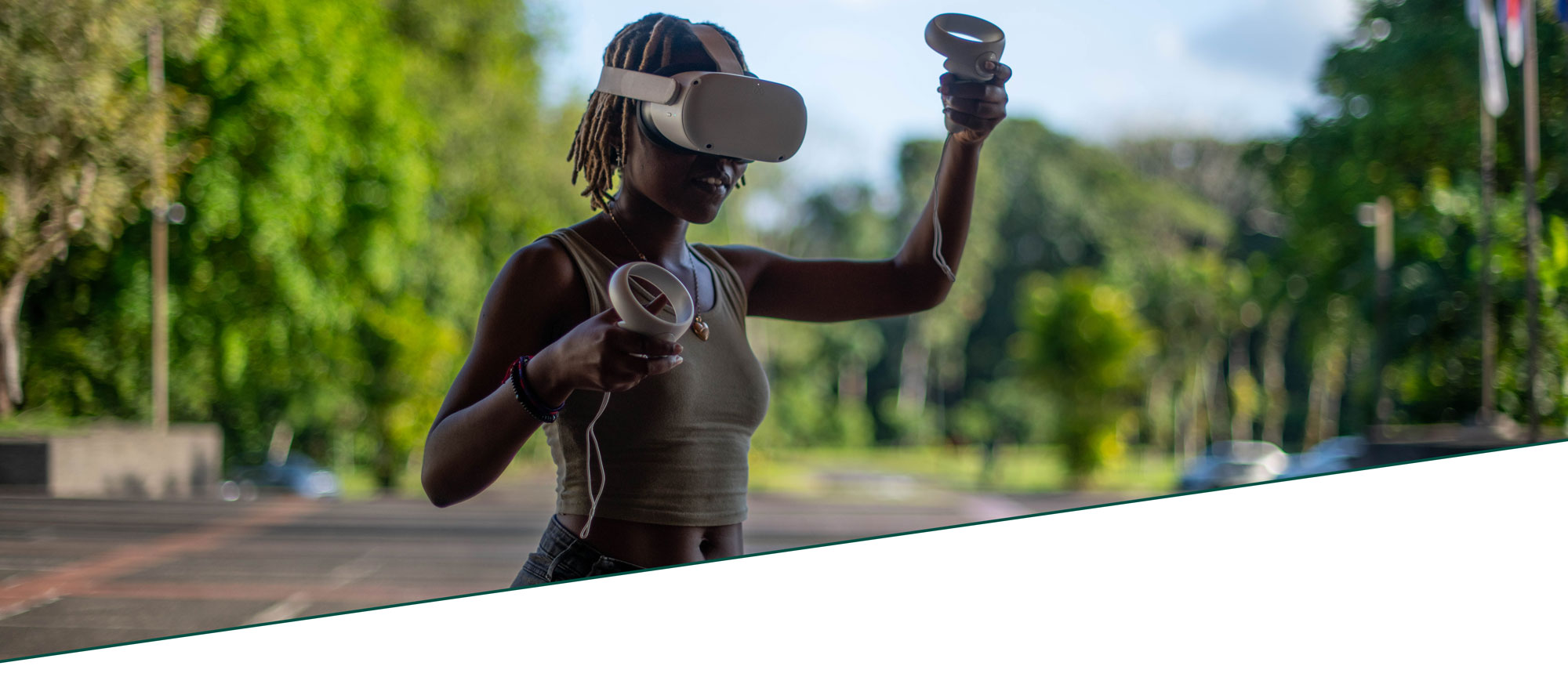
E-Learning by doing is an innovative learning program where experiential agricultural topics are accesible and taught on a virtual farm. The program allows EARTH to have a broader positive impact in the world.
The current pilot project, which began in 2020 and is supported by Mastercard Foundation, is based on the learning-by-doing approach that characterizes EARTH University’s educational model. The program’s first phase consists of 17 micro-modules divided into categories that include basic concepts and applied agronomy fundamentals, precision agriculture and other technological tools, animal production, renewable energies, and sustainable production.
The modules are part theoretical and part practical in a virtual farm, allowing users to put into practice what they have learned as if they were in real life. The virtual farm allows them to explore, participate, and experiment, but also allows them to interact with other participants to develop different collaboration and networking skills.
Most micro-modules do not require prior knowledge, and the system is accessibly designed. Additionally, to increase the program’s impact, different technological tools are offered, such as the Metaverse, Virtual and Augmented Reality, and Artificial Intelligence. Users can login via web (www.elearningbydoing.earth.ac.cr) or via mobile app which, once downloaded, allows access to content even without an internet connection.
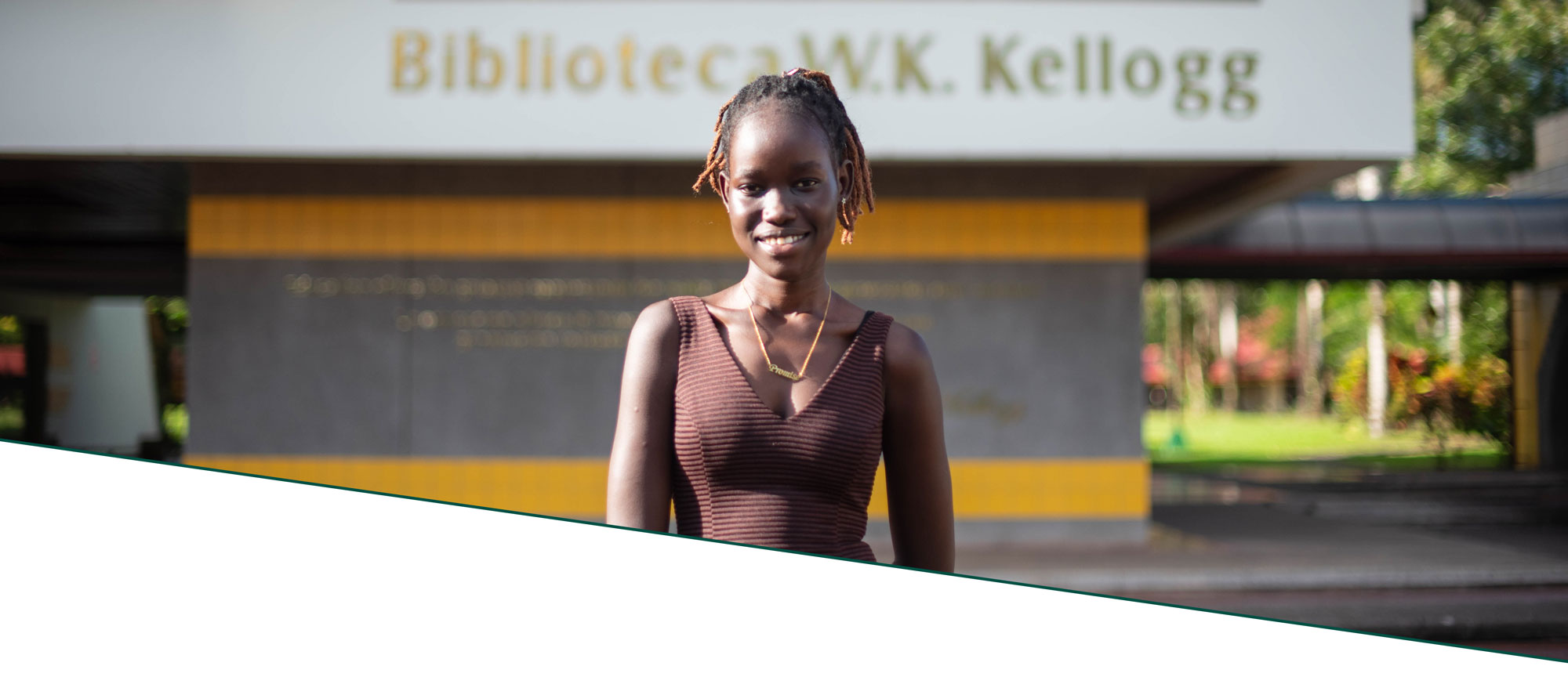
Atong Akoi Akom (’24, South Sudan) was one of the nearly two million people who fled South Sudan when armed conflict broke out in late 2013. Atong and her family settled in Kakuma Refugee Camp, in Kenya, where they started a new life. In 2021, she left home again, but this time she traveled to Costa Rica, ready to begin a four-year adventure at EARTH University to become a leader of change. As a young refugee, she has witnessed inhumane acts, yet she has also witnessed the empathetic generosity of people who have extended a significant helping hand.
“Although many believed that I – as a woman and a refugee – stood no chance or should accept a more traditional role, I was determined to continue studying. That’s how I found an advertisement about EARTH,” says Atong. “When I was admitted, Mastercard Foundation awarded me a full scholarship, which eliminated the barriers I had in my way. Winning this scholarship will allow me to help others in the community I come from. I will have the tools to help other students reach their goals, just as so many people have helped me reach mine.”
About 180,000 people live in Kakuma, 75% of whom are under the age of 25. It is essential that young women like Atong have opportunities to emerge from the confines of a refugee camp, grown and develop, and in turn uplift others. She will change her own life and the lives of many in her community, thanks to the tools, relationships, and knowledge she will gain at EARTH.
Since 2011, Mastercard Foundation and EARTH have partnered to provide educational opportunities to young people who have the potential to become change agents and who dream of improving and positively impacting their communities and our global food system. During this time, over 130 students have been awarded Mastercard Foundation scholarships and graduated from EARTH.
Thanks to the partnership with Mastercard Foundation, we are able to change the lives of talented people like Atong, who in turn are changing the world.
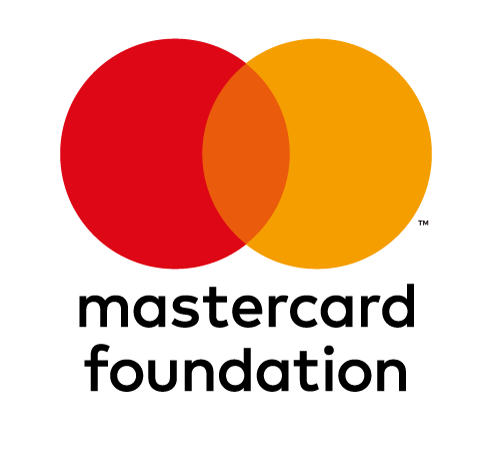
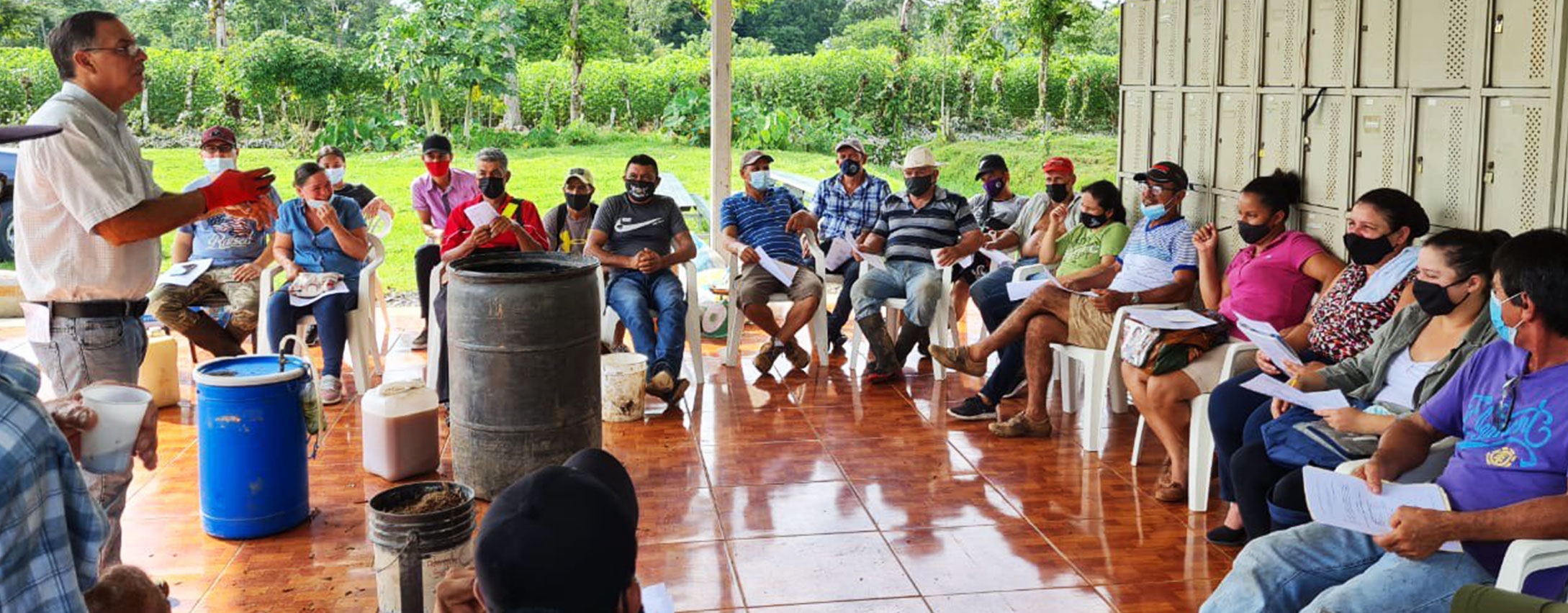
In 2022, EARTH Futures, our global solutions center, began working on the second phase of the Resilient Community Food Systems program in Costa Rica and Guatemala. We continue to train hundreds of farmers from at least nine farmer producer organizations (FPOs). The project provides knowledge and new technological tools to improve the farmers’ productivity and environmental sustainability. The program, supported by a grant from the Walmart Foundation, will focus on three specific components:
Precision agriculture: Sampling and analyzing crop soil and foliage to provide recommendations unique to each farm on how to improve their crop production and sustainably manage resources.
Creating a strong FPO management structure and an action plan to ensure long-term sustainability: Analyzing organizations, identifying areas of improvement, and helping the groups identify the best individuals to lead each area of the business based on their personalities and skill sets.
Building strong relationships within communities to create healthy business ecosystems: EARTH Futures will work with the FPOs to expand or find new alternative markets for their crops and value-added products. They will help connect local buyers with FPOs directly and encourage community members to support their local farmers.
The program’s first two-year phase proved to have great results, including: 85% of participating farmers reported increased yields; 80% of the farmers now have a clear plan to improve production efficiently; 100% of the FPOs included youth and women as organizational leaders; 100% of the FPOs report that they feel more confident in approaching potential customers.
“Thanks to the project, we understood that we had to innovate to stay in the market during the pandemic. Today we have new partners in the organization, and new customers buy our coconut products,” said Marleny González, manager at Coopecocotour, a Costa Rican company that makes handcrafted coconut products.
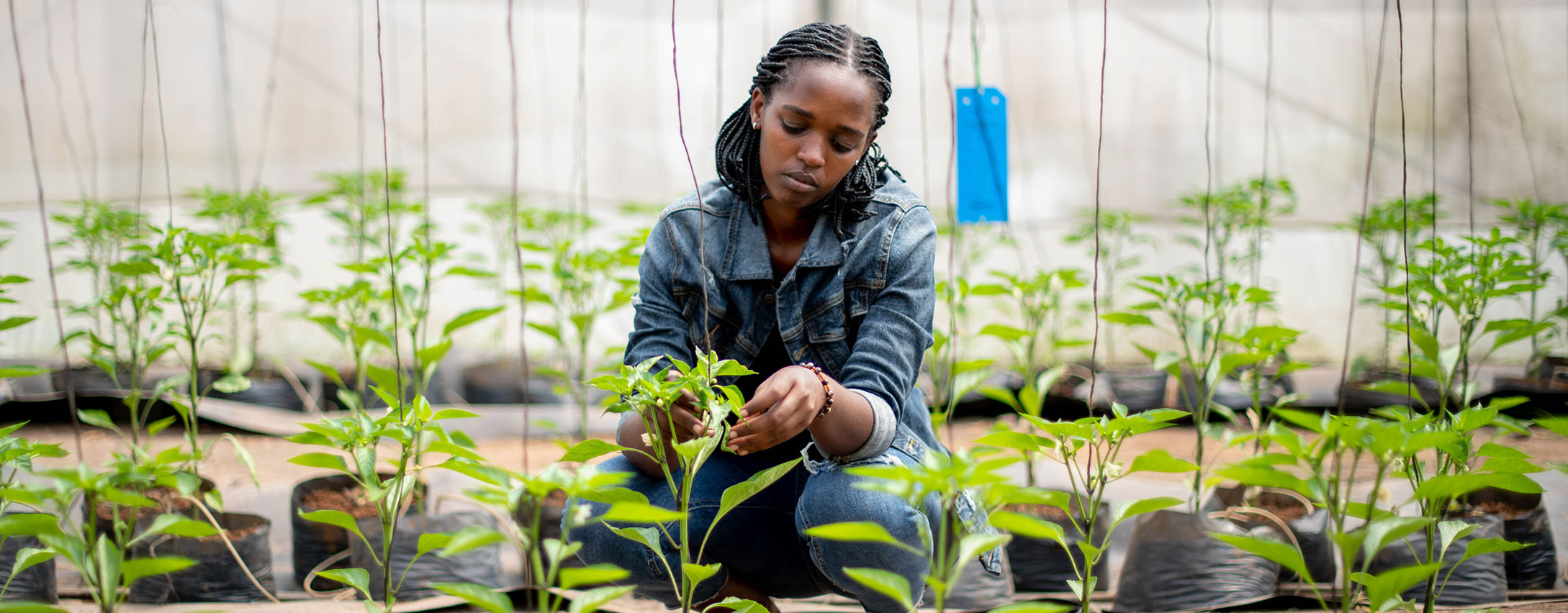
EARTH Futures partners with a wide range of agricultural education institutions and networks to transform agricultural education in Latin America, the Caribbean, and Africa working on the ground to prepare the next generation of leaders for our global food systems. By sharing key components of EARTH’s academic model and lessons learned over our more than 30-year history with academic institutions, we can expand EARTH’s impact in education. EARTH Futures designs new pilot programs with key partners including Mastercard Foundation and RUFORUM, the African network of universities, to inspire impactful innovations in the field.
For example, in 2022, EARTH, in collaboration with RUFORUM, developed and offered a series of virtual training seminars for young professionals from participating RUFORUM member universities across Africa. The seminars were designed to facilitate the transition from graduation to employment by providing knowledge, tools and practical information for young professionals. Topics included evaluating and planning a job search, expanding employment skills and knowledge on personal branding, understanding the work environment, and managing expectations, among others.
Also, in 2022, The Mastercard Foundation – EARTH University Fellowship Program selected its third cohort of participating Fellows from eight African countries. The program provides competitive, remunerated fellowships for EARTH Mastercard Foundation Scholar alumni to support their transitions into agricultural employment and entrepreneurship in Africa. Fellows are matched with host organizations and entrepreneurship incubation hubs across the continent for a period of 12 months to support their professional development and grow their impact.
Since its launch in 2021, the program has supported 38 Fellows from 12 countries. Over 80% of Fellows who have completed the program thus far have been hired into permanent positions with their host organizations, continued with their entrepreneurial endeavors and/or commenced graduate studies focused on positively transforming agriculture and food systems in Africa.
“With the support of the Fellowship Program, I have been able to work with 7,430 farming families through my venture, Murerwa Agribusiness Innovation Center, which seeks to promote good agricultural practices and producer access to new markets. We estimate that more than 37,000 people have been indirectly impacted by the project.”
Respect Musiyiwa (Class of 2019 & 2022 Fellow, Zimbabwe)
EARTH University alumni joined forces to provide scholarships for new generations of change agents to be able to study at EARTH. 10% of the alumni community contributed to raise US$10,721 in 2022.
Gift were received from:
Careful stewardship of resources, together with growth in charitable gifts and commercial activities, are contributing to a healthy financial picture that enables us to fulfill our mission.
| Expenses | |
|---|---|
| Salaries and benefits for personnel | $12,612,885 |
| Operating expenses | $6,799,458 |
| Equipment | $970,339 |
| Contingencies | $50,165 |
| Total | $20,432,847 |
| Sources of Revenue | |
|---|---|
| Grants | $9,851,918 |
| Tuition paid by students | $3,180,294 |
| Other income (commercial activities and other) | $805,557 |
| Endowment | $6,595,079 |
| Total | $20,432,847 |
From its headquarters in Atlanta, Georgia, the EARTH University Foundation – a registered 501 (c)(3) public charity – provides vital funding for EARTH’s educational mission, programs and projects thanks to generous gifts from a global community of supporters.
| Assets | |
|---|---|
| Cash and cash equivalents | $2,864,627 |
| Pledge receivables, net | $2,740,959 |
| Endowment and other investments | $68,873,417 |
| Other assets | $911,750 |
| Total Assets | $75,390,753 |
| Liabilities and Net assets | |
|---|---|
| Liabilities | $421,875 |
| Net assets | $74,968,878 |
| Total Liabilities and Net assets | $75,390,753 |
| Programs | Fundraising | Administrative | Total expenses | |
|---|---|---|---|---|
| Scholarships | $4,989,255 | $0 | $0 | $4,989,255 |
| Project and program expenses | $3,557,065 | $0 | $0 | $3,557,065 |
| Foundation Operations | $252,252 | $681,899 | $511,660 | $1,445,811 |
| Total | $8,798,572 | $681,899 | $511,660 | $9,992,131 |
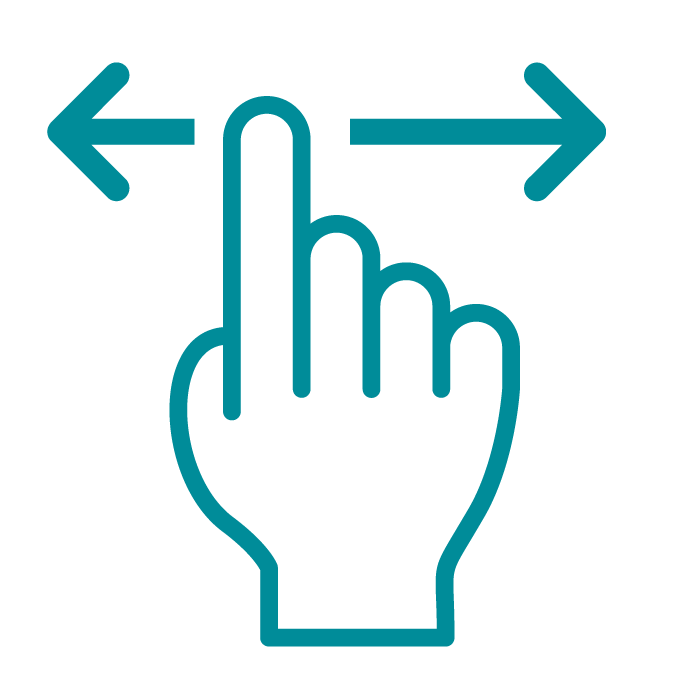
Scroll to see the full table
We recognize and appreciate the generous support of the following donors whose gifts were received in 2022, with special thanks to those whose lifetime giving exceeds US$1 million. These individuals, businesses, foundations, governments, and international organizations make our mission possible.
Alumni Directed Gifts
† Deceased
We thank the following corporations and institutions around the world who hosted our third-year students as interns in 2022. The Internship helps our students build critical leadership skills and networks, while deepening their knowledge and giving them the opportunity to apply the skills developed at EARTH in a professional setting.
Selvin completed his internship in Brazil at the PECEGE Institute, an educational institution associated with the Luiz de Queiroz School of Agriculture (ESALQ) of the University of São Paulo. In the internship, Selvin's main goal was to learn about the use of statistical tools applied to agronomy, oriented explicitly to agricultural supplies.
"I chose this internship because it gave me the opportunity to see and learn agriculture from the perspective of a highly technological country immersed in large-scale precision agriculture, besides reinforcing and learning knowledge of agribusiness and in the scientific part of research. At the same, it gave me the opportunity to learn a new language."
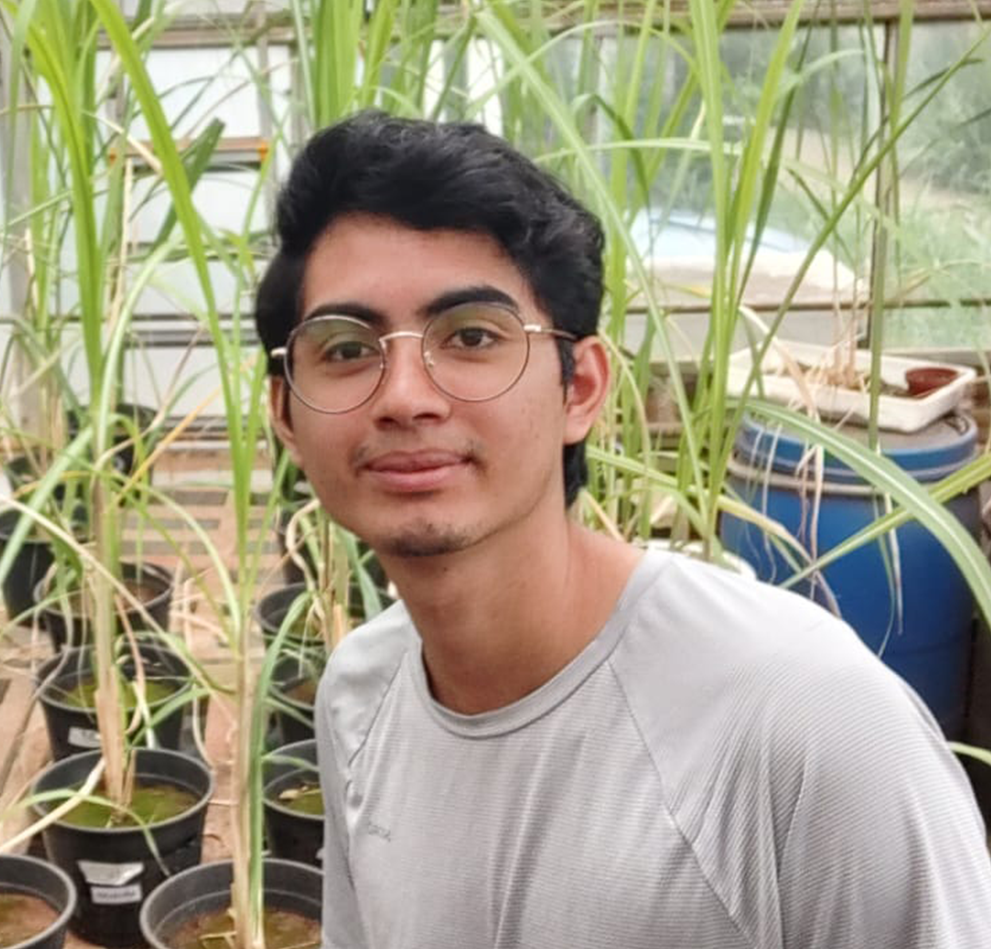
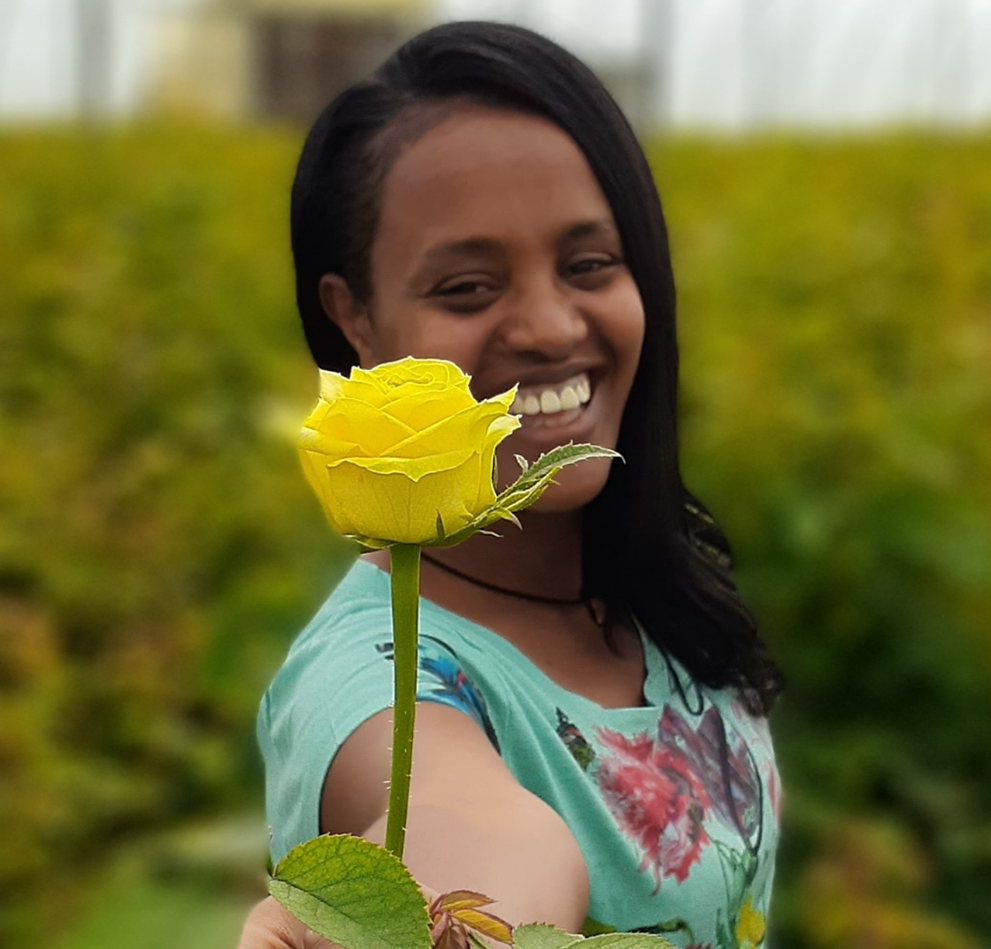
Mekdes traveled back to her country to do her internship at Sher Ethiopia PLC, the world's largest rose producer, and Europe's leading rose supplier. Her main goal was researching and applying different integrated pest management procedures.
"EARTH gives us the tools and knowledge to be successful professionals in real work environments and, at the same time, to advance the social and environmental changes that the world urgently needs. The University has helped open my eyes to see my country’s opportunities and wealth and learn about the needs of the agricultural industry."